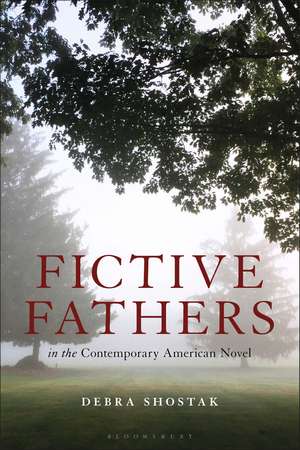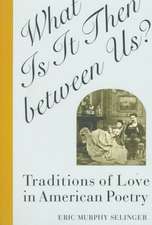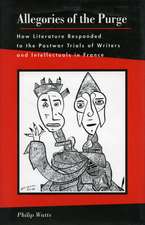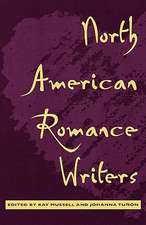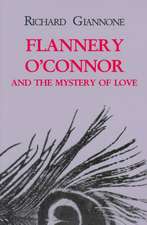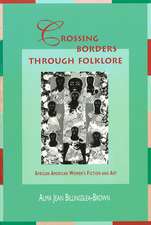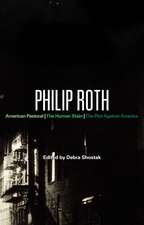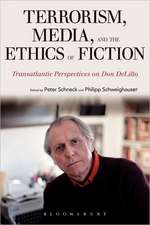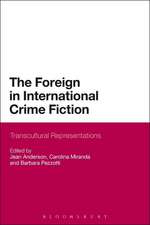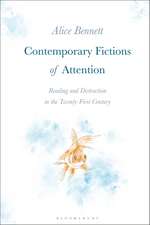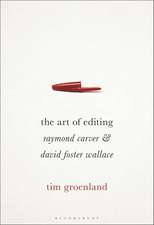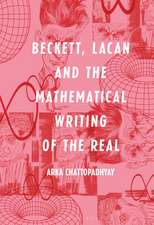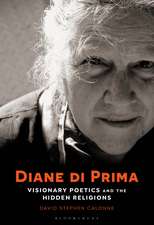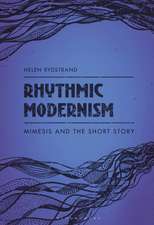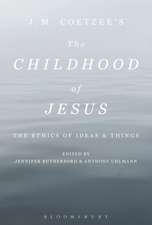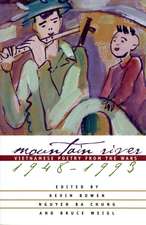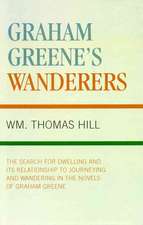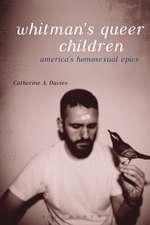Fictive Fathers in the Contemporary American Novel
Autor Professor Debra Shostaken Limba Engleză Hardback – 19 feb 2020
| Toate formatele și edițiile | Preț | Express |
|---|---|---|
| Paperback (1) | 218.54 lei 6-8 săpt. | |
| Bloomsbury Publishing – 25 aug 2021 | 218.54 lei 6-8 săpt. | |
| Hardback (1) | 657.54 lei 6-8 săpt. | |
| Bloomsbury Publishing – 19 feb 2020 | 657.54 lei 6-8 săpt. |
Preț: 657.54 lei
Preț vechi: 943.74 lei
-30% Nou
Puncte Express: 986
Preț estimativ în valută:
125.83€ • 136.64$ • 105.70£
125.83€ • 136.64$ • 105.70£
Carte tipărită la comandă
Livrare economică 22 aprilie-06 mai
Preluare comenzi: 021 569.72.76
Specificații
ISBN-13: 9781501340048
ISBN-10: 1501340042
Pagini: 288
Dimensiuni: 152 x 229 mm
Greutate: 0.56 kg
Editura: Bloomsbury Publishing
Colecția Bloomsbury Academic
Locul publicării:New York, United States
ISBN-10: 1501340042
Pagini: 288
Dimensiuni: 152 x 229 mm
Greutate: 0.56 kg
Editura: Bloomsbury Publishing
Colecția Bloomsbury Academic
Locul publicării:New York, United States
Caracteristici
Brings together a wide range of North American novels by 11 male and seven female writers, placing many of them into new comparisons with one another
Notă biografică
Debra Shostak is Mildred Foss Thompson Professor of English Language and Literature at The College of Wooster, USA. She is the author of Philip Roth-Countertexts, Counterlives (2004) and editor of Philip Roth: American Pastoral, The Human Stain, The Plot Against America (Bloomsbury, 2011).
Cuprins
Acknowledgments1. IntroductionThe HauntingTheoretical FathersHistorical FathersStorytelling after the FatherThe Organization of the Book2. Anxieties of Influence and the Decline of the PatriarchJohn Irving's Family Romances-The World According to GarpJonathan Franzen's Fallen Father-The Corrections3. Middle-class America at Mid-century Jane Smiley and the Father Dethroned-A Thousand AcresAnne Tyler: The Domestic Comedy of Home Economics and Homesickness-Dinner at the Homesick RestaurantPhilip Roth's Late Fathers-Everyman, Indignation, NemesisMarilynne Robinson's Earthly Fathers-Gilead, Home, Lila4. Desiring DaughtersJeffrey Eugenides and the Odor of Cooped-up Girls-The Virgin SuicidesMona Simpson: He Was Only a man-The Lost FatherCarole Maso: The Art of Losing-The Art Lover5. Searching Sons, the Word, and the FleshPaul Auster: The Body in/and the Text-City of Glass, Moon Palace, Mr. VertigoJonathan Lethem: Signifying Manqué-Motherless Brooklyn6. The Father in the Apocalyptic Imagination-Part One: The EnvironmentDon DeLillo: The Genealogical Imperative as Toxic Event-White NoiseCormac McCarthy: "There is no Book and your Fathers are Dead in the Ground"-The Road7. The Father in the Apocalyptic Imagination-Part Two: Politics and 9/11Philip Roth's Orphans-The Plot Against AmericaJonathan Safran Foer and the Fathers' Fall-Extremely Loud and Incredibly CloseClaire Messud and "Dad's Thing"-The Emperor's Children8. Postmemory after the Patriarch: Narrating the War in VietnamBobbie Ann Mason at the Tomb of an Unknown Soldier-In CountryTim O'Brien Among the Missing-In the Lake of the WoodsViet Thanh Nguyen and Traumatic Representation-The SympathizerNotesWorks CitedIndex
Recenzii
What does it mean to be a father? What does it mean to be a part of a family? In Fictive Fathers, Debra Shostak exposes the fantasy of the American middle-class family as it gives way to the demands of the 21st century. This richly nuanced study of generational and gendered familial dynamics paints a provocative portrait of the shifting if often unsteady repositioning of patriarchal authority in response to the changing social and political landscape of American culture. In doing so, Shostak redefines the shape and scaffolding of the American family, exposing both the limitations and the seductions of the myth of the family in a culture that welcomes and at the same time resists such a re-envisioning of gender roles and the authority of the father.
Fictive Fathers in the Contemporary American Novel is by far the best book in its field. It offers nuanced, revelatory readings of a wide range of contemporary American fiction while at the same time making a vital contribution to our understanding of the key issues of our time: class, race, gender, and the relationship between personal and national politics. It will be essential reading not just for students and scholars of contemporary fiction but for anyone interested in fatherhood and masculinity in post-war America.
Fictive Fathers is an exemplary study of a fascinating subject. Shostak displays the critical acuity typical of all her work in this analysis of missing and flawed fathers in postwar North American fiction. Wide ranging in its choice of texts but firmly focused on its central argument, this is a persuasive, engaging, and authoritative account of the ways in which the myths of fatherhood shape contemporary masculinity and family dynamics.
Informed by a sophisticated deployment of psychoanalytic theory backed with a supple sense of history, Debra Shostak's important Fictive Fathers in the Contemporary American Novel addresses an impressive array of American novels to explore and challenge the hetero-normative fantasy of normative Western manhood as the symbolic center of the social order. A true feat of daring critical range and virtuosity, this work is one of the best studies available of the American novel in the post-World War II, postmodern era.
Fictive Fathers in the Contemporary American Novel is by far the best book in its field. It offers nuanced, revelatory readings of a wide range of contemporary American fiction while at the same time making a vital contribution to our understanding of the key issues of our time: class, race, gender, and the relationship between personal and national politics. It will be essential reading not just for students and scholars of contemporary fiction but for anyone interested in fatherhood and masculinity in post-war America.
Fictive Fathers is an exemplary study of a fascinating subject. Shostak displays the critical acuity typical of all her work in this analysis of missing and flawed fathers in postwar North American fiction. Wide ranging in its choice of texts but firmly focused on its central argument, this is a persuasive, engaging, and authoritative account of the ways in which the myths of fatherhood shape contemporary masculinity and family dynamics.
Informed by a sophisticated deployment of psychoanalytic theory backed with a supple sense of history, Debra Shostak's important Fictive Fathers in the Contemporary American Novel addresses an impressive array of American novels to explore and challenge the hetero-normative fantasy of normative Western manhood as the symbolic center of the social order. A true feat of daring critical range and virtuosity, this work is one of the best studies available of the American novel in the post-World War II, postmodern era.
